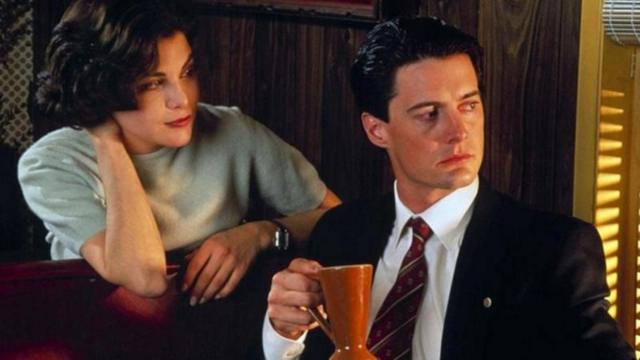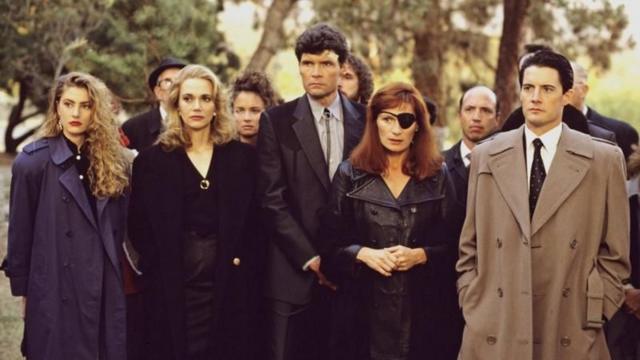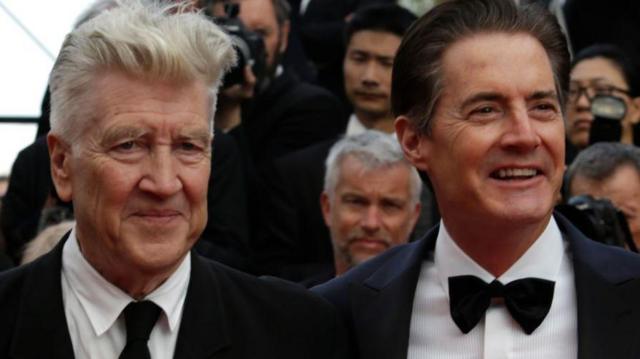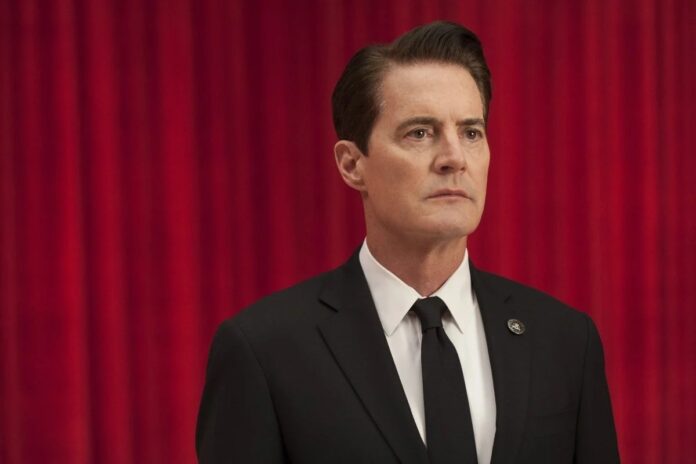On April 8, 1990, the audience met Twin Pix series and his main character - a brilliant and eccentric special agent of FBI Dale Cooper performed by Kyle Maclachlen, who later received Emmy for this role.
Due to its constant politeness, unconventional but successful methods of investigation, obsessed love for cherry pie and "a bell of a wonderful" coffee, as well as the habit of writing to the dictator's message to his invisible secretary Diana, Agent Cooper quickly became one of the most beloved television.
In exclusive BBC archival interviews, the creators of the series told about his unique atmosphere and an extraordinary protagonist.
Screenwriter Mark Frost told BBC Late Show that the co -author and director of the series David Lynch was partially inspired by this character.
"I tried to some extent to create this character in the image of David," said Frost. "Many of his oddities and attention to the details, which so much in David, with this character came to the surface."

Photo author, Rex
Spooky, cinematic and often confusing, Twin Pix did not look like anything that offered television at that time.
Its action takes place in the picturesque town of the same name, where FBI Agent Dale Cooper tries to help the local police investigate the murder of high school students Laura Palmer played by Steril Lee. While Cooper is looking for a killer, the city gradually reveals its gloomy secrets - crime, deeply hidden injuries and supernatural phenomena.
Before that, Frost was a screenwriter of the NBC TV series Gill Street Blues about a police station overloaded with work, which was innovative at that time. So Frost and Lynch wanted to raise this bar with Twin Pixo.
Bluz Gill Street turned the idea of a police series upside down at the beginning of a decade, we had a chance to do something like Twin Pix. I think that this genre has already become obsolete in the last few years, and the classics of this genre have already been tired. Maybe there is a way to embody new ideas and a new approach in evening series? This is exactly how Twin Pix appeared, - said Frost.

Photo author, Getty Images
Lynch, who was then well known as a filmmaker, saw opportunities in the long format of the series.
"The best thing in television is that it gives a chance to tell a long story, and I like it very much," said Lynch at BBC Late Show. "This is the main reason to do the series - the idea that you can feel this world, get acquainted with these characters and unravel these problems over the weeks."
This series cannot be attributed to any one genre - this is a police detective and a mysterious melodrama with elements of horror, surrealism and comedy.
Lynch brought to him a striking visual aesthetics and a dreamy atmosphere, which was perfectly complemented by Angelo Badalamenty music.
“Dale Cooper is David”

Photo author, Getty Images Signature to Photo, David Lynch and Kyle Maclachlen at Twin Pix in Cannes in 2017
Like his main character Cooper, Lynch himself was prone to unconventional approaches. The series often moved from everyday life to a strange weirdness within one scene, and characters' images, such as a problematic young biker or corrupt businessman, were much more strange and ambiguous than it seemed at first glance.
Lynch's love to long frames added scenes that unfold in a regular small American town - for example, in a dining room, high school or home in the suburbs - a feeling of anxious expectation.
"One of the things that unmistakably pointing to David's work," Frost said, "is his ability to go beyond the traditional story."
"Very often in cinema and television emotion is not used to convey your emotion, but to weave it into the plot. They say," Here is a grief, we understand it, let's move on. " explains the screenwriter.
Despite the fact that at first Twin Pix was only two seasons, he had a huge impact on the series that were filmed after him. The echoes of his surrealist nature, alternative realities, peculiar characters and dreams of dreams can be seen in everything: from "secret materials", "lost" and "Fargo" to "left" and "clan Soprano".
He received a legion of devoted fans, thanks to which, based on the series in 1992, they first created the movie Twin Pix: Fire with me, and then shot the third season in 2017.
And in the center of all this is Agent Dale Cooper with his enthusiasm and eccentricity, the reflection of David Lynch himself.
As Kyle Maclachlen Guardian said in 2020: "I added a lot of David when he played - whether in pronunciation or in some phrases said by David. Indeed, Dale Cooper is David, not me."


